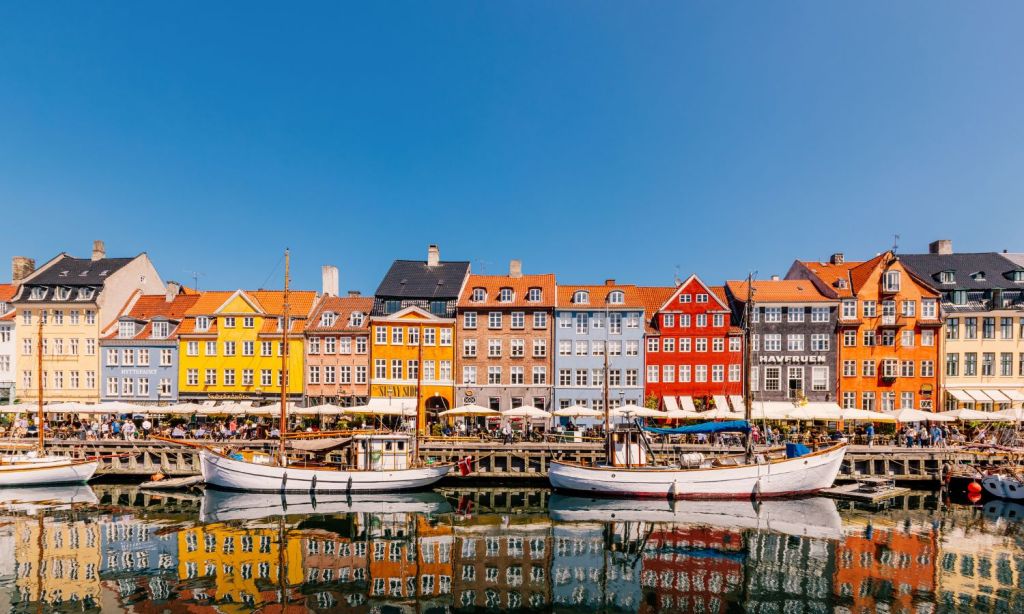Overtourism is the word on many lips, with protests against tourists held across Spain this Euro summer and ‘destination dupes’, alternative options to tourist hotspots, one of this year’s biggest travel trends.
Cities and countries are scrambling to deal with the issue, which can damage the environment and put pressure on local populations. But on that front, Denmark and Japan are leading the way, thinking outside the box.
In the last five-odd years, many countries, cities and areas, like popular beaches, have imposed daily limits on visitors and tourist taxes.
In 2017, Dubrovnik introduced a limit of 8,000 visitors and a cap of two cruise ships to be docked per day. This year, Venice introduced a five-euro entry fee for day trippers over 14 years old coming in on peak days. And this month, Barcelona’s mayor announced plans to raise the tourist tax for cruise passengers who visit the city for less than 12 hours.
Closer to home, Australia’s Lord Howe Island only allows 400 guests to stay on the island every night, and in 2019, NSW’s Hyams Beach had traffic controllers redirecting tourists away from the popular beach said to have some of the whitest sand in the world.
Some cities and countries are also investing in campaigns to redistribute incoming tourists so they’re not just visiting hot spots, but also other less-frequented places. In February 2024, the Canary Islands launched a campaign called ‘Secrets await inland’, which aims to redistribute the economic impact of tourism across the region.
Other tourism campaigns are discouraging certain types of tourists from coming in. The best-known example of this is in the Netherlands. In March 2023, Amsterdam unveiled a campaign with several videos discouraging rowdy British men aged 18 to 35, visiting the Dutch city for sex and drugs, from visiting.
“Typically blunt, the videos show young men staggering in the street, handcuffed by police, finger-printed and having their mugshots taken,” reported BBC.
But Japan and Denmark are setting an example in how they’re dealing with issues of overtourism. Rather than fight the number of and types of visitors, they’ve introduced ways to manage them so that tourism has less of an impact on the planet.
In July 2023, Japan Airlines introduced a clothing rental service for foreigners, launched on a trial basis through August 2024. Called ‘Any Wear, Anywhere’, the initiative was designed to reduce the aircraft’s weight, which then cuts down on its carbon emissions.
“The concept of the service is, therefore, to provide a travel experience with minimal luggage by offering clothing rentals at the destination, thereby creating environmental value,” the airline said in a statement at the time via CN Traveller.
Those keen on using the service can register on the program’s website at least a month before their trip, putting in their flight details and the address of their hotel or other accommodation where the clothes will be delivered.
The clothing rental period is for two weeks, and the cheapest option comes with three tops and two bottoms, while the most expensive is six tops and three bottoms. Wardrobes are categorised by season and occasion.
Denmark is also thinking outside the box in terms of managing overtourism. This month, it launched a program in Copenhagen that gives free perks to visitors who opt for eco-friendly activities, with the tagline: ‘free attractions for climate action’.
Called CopenPay the program will run from Monday, July 15 to Sunday, August 11 this year. It incentivizes visitors to make more eco-conscious travel decisions, rewarding them for taking the train, walking or biking and doing eco-friendly activities. The program works on an honour system.
“No matter if you ride a bike, use public transportation or collect trash, you can spend your good energy to collect the listed rewards, and we trust you when you ask to pay with it,” reads Visit Copenhagen’s site. “After all, the only one you would be cheating is yourself if you miss out on doing good for our planet.”
After the summer trial, the city hopes to re-introduce CopenPay as a year-round, green payment experience and then broaden it to other parts of Denmark.
In the coming years, tourism will only continue to soar, globally. A 2023 report by Global Data found that France will welcome 93.7 million international travellers annually by 2025, while a report NextGen Travelers and Destinations forecasted that by 2050, Spain would welcome 110 million tourists a year. The pressure is on these tourist hotspots to think outside the box and find creative ways to manage these numbers.
Related: Why Australian Hotels Are Buying Bees in the Name of Sustainability
Related: Considering a Move? These Countries Have Better Policies and Perks for Parents Than Australia
Read more stories from The Latch and subscribe to our email newsletter.

